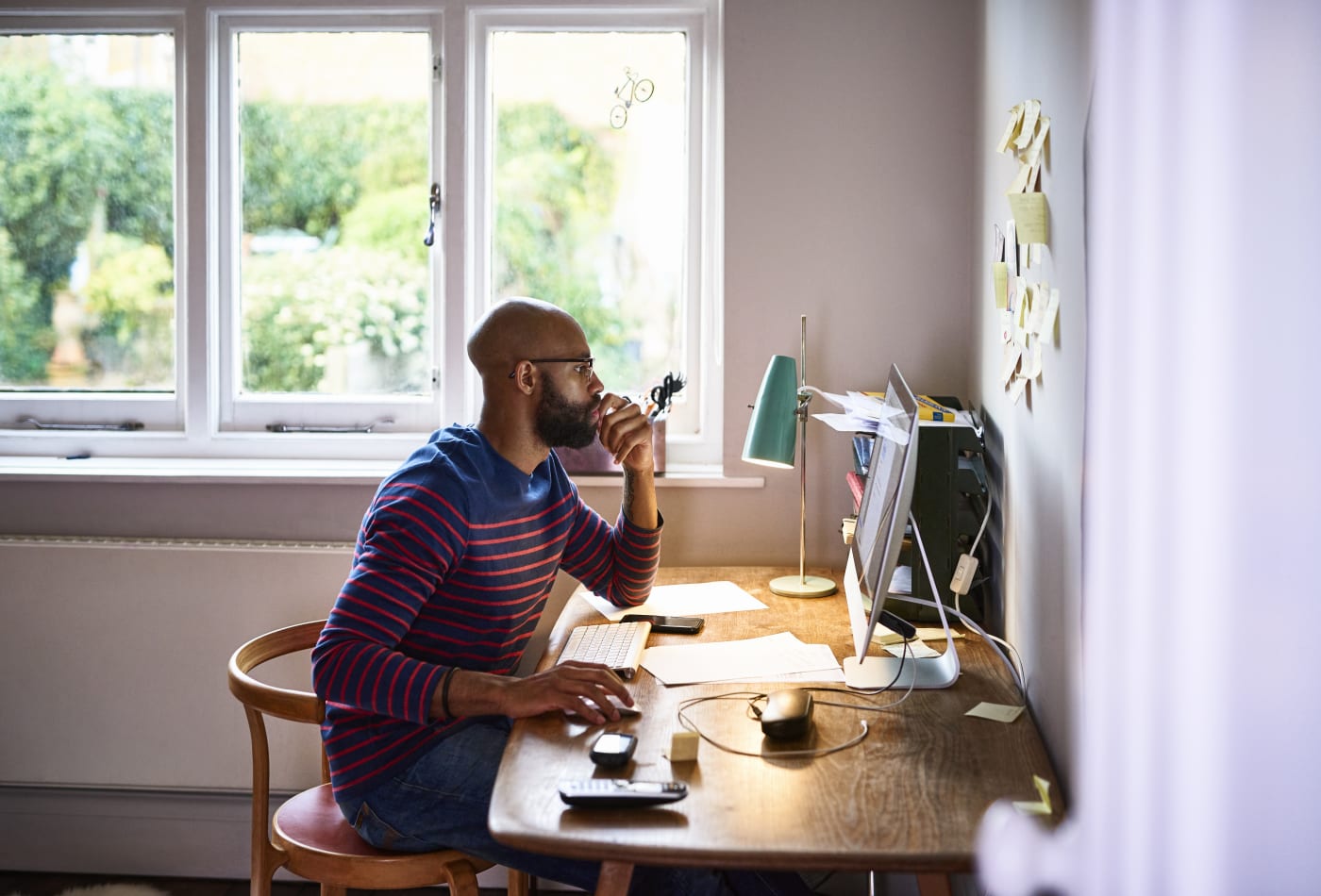Working From Home Hacks
Mental Health
Men's health charity Movember provides some tips for being happier and more productive in the home office.
It’s normal to be finding things a bit difficult right now, especially if you’re struggling with working in the home office each day during this global crisis – you’re certainly not alone.
Dr Kathryn Page, organisational psychologist and member of Movember’s Global Advisory Committee for Mental Health, has pulled together some simple guidelines to help take some of the stress out of the working day.
Here are five evidence-based strategies for keeping your mental health in check when working in isolation:
- Start and end your day right
Finding it hard to switch into and out of work mode? Working from home can make it difficult to separate your personal and work time.
To combat this, invest in rituals to bookend your working day:
- Shower and dress each morning as if you are going to work.
- Make a list of the tasks you want to get done for the day and organise your calendar accordingly.
- Put a full stop on your day. E.g. Fully pack up your laptop and put it away to tell your brain it’s time to switch off. It also reduces the temptation to dip back into work later.
- Unmute yourself
Working at home can be lonely – particularly for those of us who require a lot of social interaction to feel engaged.
Try these tips to feel more connected:
- Switch to video – Yes, this may mean a surprise cameo from your cat but it also provides opportunity to laugh and connect with your colleagues on a more personal level and reminds you to be fully present on the call.
- Take 10 mins at the start of every call for random chat – the kind you’d have if you bumped into a colleague in the kitchen. Break up your day with a virtual lunch or agenda-free coffee.
- More structure not less – Use more structured questioning in large meetings (e.g. work around the virtual room). While this may feel contrived, it will help ensure everyone has a voice.
- Work in 90 minute sprints
Having trouble focusing with your entire household at home? Having a productive day, doesn’t mean being chained to your desk.
In his seminal HBR article, Tony Schwartz recommends working in 90 minute sprints – the optimal human limit for intense concentration. The idea is simple: Focus on one task deeply for 90 minutes and then rest for 10. Repeat this throughout your day.
To get the most out of your 90 minutes:
- Be strict on your time limit- no sneaky check of your emails before you begin
- Have a hard stop at the 90-minute mark, even if you’re in the zone
- Do your hardest or most important task first
- Fully disengage during rest time
- Find your third space
Learning how to transition, with purpose, from one activity to the next can boost your wellbeing and your performance. Dr Adam Fraser calls this transition point “the third space”.
Use your third space to switch between work and non work-related activities (e.g. from a work call to a conversation with your spouse or kids) or to bookend your day:
- Reflect constructively on the activity you’ve just completed (‘what went well in that meeting/today?’)
- Rest – get present in the current moment (e.g. focus on your breathing)
- Reset for the next activity (e.g. ‘what energy do I want to bring to my kids tonight?’).
- Recover from work actively
Lastly, managing your mental health when WFH is also about your down time. Science shows certain kinds of activities – called recovery activities – can help reverse the allostatic load (that feeling of being totally spent) which builds over the day.
Recovery activities are those which allow you to:
- Fully detach from work (i.e. get completely absorbed in something non-work related)
- Feel like you’ve achieved or mastered something important
- Get a hit of positive emotion, like humour and relaxation
- Be in control of yourself or your surroundings.
Having a non-work project which you can dip into or out of is a great recovery activity, as is exercise (particularly outdoors) and creative tasks.
In short….
Making the most of WFH is about working (and relaxing) with intention. Small changes to your day can boost your mood, increase your productivity and bolster your relationships – all great ways to protect your mental health.
Trending

Join The Book of Man
Sign up to our daily newsletters to join the frontline of the revolution in masculinity.


















